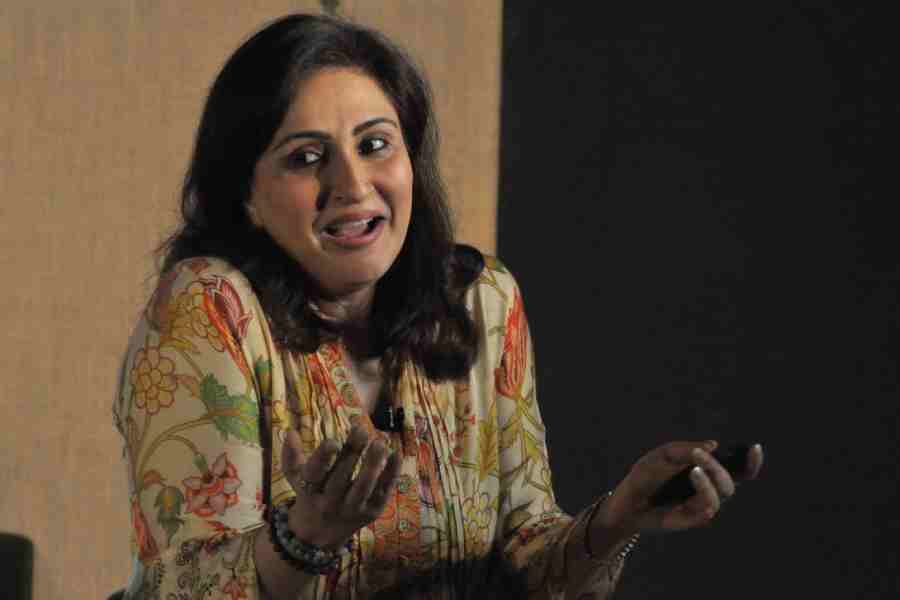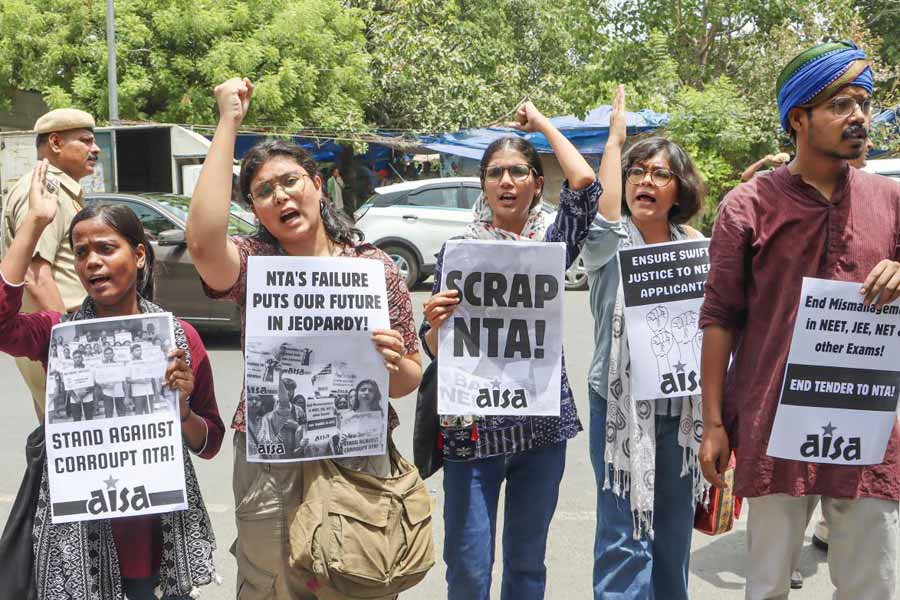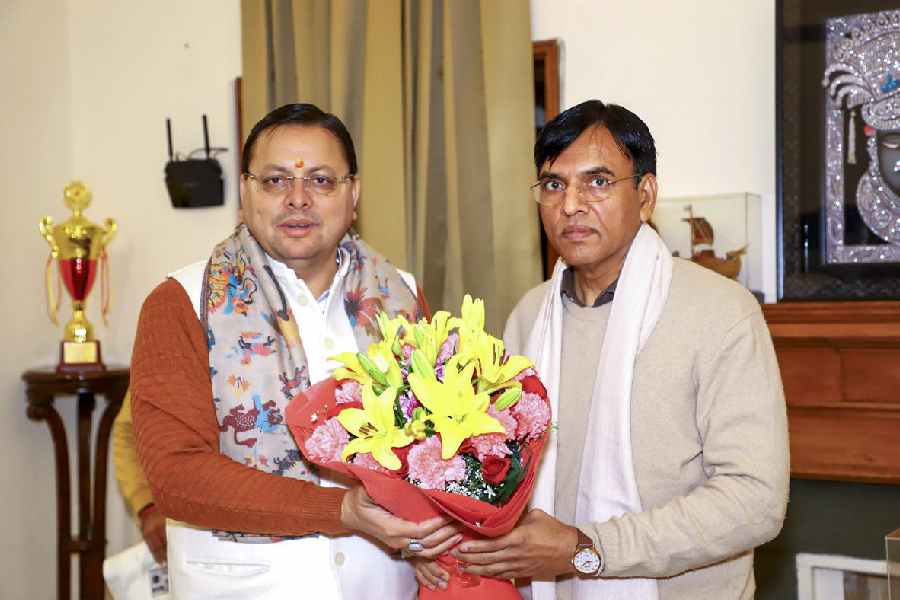Slowly and steadily, the amphitheatre at the Kolkata Centre for Creativity is emerging as an innovative space where the restrictions of proscenium theatre may be relaxed and the performer(s) and the audience may interact more meaningfully. Mumbai-based Ekjute’s With Love, Aap Ki Saiyaara (picture) is a case in point.
First, it marks the return of Juhi Babbar Soni to the Calcutta stage after a decade or so and, with her, of Ekjute. Calcutta has fond memories of Ekjute’s illustrious past. More significantly, it marks the coming of age of Babbar Soni as an actor par excellence. This time, she also writes a script and directs it. Aap Ki Saiyaara is as good as it gets — direct and straight from the heart. With some help from an able, two-member supporting cast and technicians who operate the music and the lights, Babbar Soni enacts the life of one Saiyaara Ali, a business icon who trades in semi-precious stones and hobnobs with the best in the fashion and entertainment industry.
For a change, Ali is a modern woman who takes pride in her family name, her upbringing and, most important, her language, Urdu. She is successful, yet vulnerable to the core. As she retells her life after the publication of her candid autobiography and its stupendous success, she opens up about her experiences with the men in her life. But Aap Ki Saiyaara is not another innocence-to-experience drama which draws you closer as it moves along. Its appeal lies in its frankness and Babbar Soni’s skilful use of the stage space to make it look like you are having a cup of tea at her Mumbai drawing room. By employing time-tested tools like planting an actor in the audience and continuously making eye-contact with everyone seated in a semi-circle (some like me, almost at an arm’s length), Babbar Soni succeeds in creating an immersive space without making us uncomfortable for a second during her 100-minute-long performance.
Having watched her on two consecutive evenings (September 23, 24), this reviewer felt reassured about her consummate acting abilities in playing multiple characters without a single jarring note, not to mention the ease with which she used the Hindi film songs of the 1950s and the 1960s, with their distinctive poetic streak, to communicate with the audience and carry the narrative forward. Speaking of the script, she makes sure that it makes sense to her multi-lingual, multi-ethnic and predominantly urban audience. For instance, she explains Arabic terms related to Muslim marriage rituals, but never at the cost of the authenticity the words generate. However, the LED panel at the back that doubles up as a projection of her laptop screen was a let down — both visually and aesthetically. The saving grace was the pre-recorded video appearance of Dharmendra and Zarina Wahab as Ali’s parents, speaking from their farmhouse outside of Mumbai. That yesterday-once-more moment lingers.
KCC has also tied up with Serendipity Arts to bring some selected pieces from the country’s premiere performing arts festival. On September 17, the same amphitheatre saw Photo-Copy. While we appreciate this middle-class family drama featuring Rasika Agashe as a matriarch who responds to her children’s varying degrees of admiration towards their father who passed away 16 years back, Photo-Copy has little to offer. Written and directed by Niketan Sharma, it is dated in terms of dramaturgy and rather predictable in its treatment of the theme. Barring one dream sequence, it is just another evening at the theatre.











